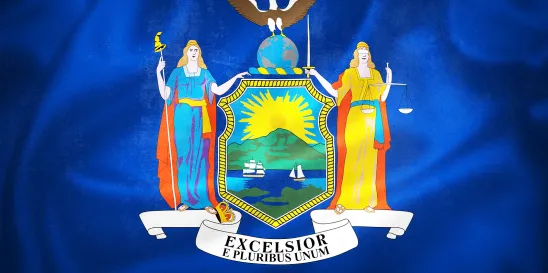On January 17, 2024, the Appellate Division of the New York Supreme Court for the Second Department held in Grant v. Global Aircraft Dispatch, Inc. that no private right of action exists for a violation of New York Labor Law (“NYLL”) Section 191, the frequency of payment provision that dictates how often New York employers must pay certain types of employees. The decision in Grant creates a departmental split with a previous decision issued by the First Appellate Department over whether a private right of action exists under the NYLL and arrives on the heels of Governor Hochul’s announcement of the Executive Budget Proposal for fiscal year 2025, which included proposed legislation that would limit plaintiffs’ recovery of liquidated damages for violations of the frequency of payment provisions under the NYLL. Both of these developments come as welcome news for employers in New York state but are by no means the last word on this heavily litigated and contentious issue.
Background on Frequency of Pay Claims in New York
Section 191 of the NYLL regulates how frequently certain employees must be paid. “Manual workers” must generally be paid weekly and not later than seven calendar days after the end of the week in which the wages were earned. Other type of workers, such as “clerical and other workers” must be paid at least semi-monthly and “commission salespersons” at least once a month. Employees in an executive, managerial, or administrative capacity are not covered by Section 191.
As we reported previously, prior to September of 2019, numerous New York federal and state courts held that there was no private right of action under Section 191 for purely untimely payments of wages, and the few courts that did consider claims made by employees pursuant to Section 191 did not specifically analyze the threshold issue of whether such claims were authorized by statute. On September 10, 2019, the Appellate Division of the New York Supreme Court for the First Department held in Vega v. CM & Associates Construction Management, LLC that a private right of action exists for NYLL’s frequency of pay provisions, both express and implied, and that plaintiffs can recover liquidated damages equal to all late-paid wages for violations of the same. In that case, the plaintiff alleged she was employed as a “manual worker” and was paid on a biweekly basis. The First Department reasoned that an employer’s failure to pay wages on a timely basis pursuant to the requirements of NYLL Section 191 constituted an “underpayment” thereby permitting recovery of liquidated damages in the amount of 100 percent of the late-paid wages. The decision in Vega prompted the filing of hundreds of private court actions claiming companies failed to pay “manual workers” on time pursuant to Section 191.
The Grant Decision
In Grant, the Second Department affirmed the trial court’s decision dismissing the frequency of pay claim of an employee, brought on behalf of himself and a proposed class of other employees who were employed by the defendant as alleged “manual workers.” Significantly, the Second Department declined to follow the holding of the First Department’s decision in Vega. In doing so, the Second Department rejected the reasoning in Vega that failure to pay wages on a timely basis constitutes an “underpayment” and concluded, to the contrary, that the payment of full wages on a regular biweekly payday does not constitute a “nonpayment” or “underpayment” of wages. Accordingly, the court held that, pursuant to the express language of the NYLL, liquidated damages are not available absent a “nonpayment” or “underpayment” of wages. The Second Department went on to explain that a private right of action would be inconsistent with the legislative scheme and, therefore, a private cause of action could not be implied in the face of significant enforcement mechanisms provided for in the statute.
Implications for Employers
The decision in Grant creates a split between the First and Second Departments on the issue of whether the NYLL provides for a private right of action, making it more likely that an appeal will reach the New York State Court of Appeals (the State’s highest court). At the moment, the decision in Grant is binding on state trial courts in the counties of Richmond, Kings, Queens, Nassau, Suffolk, Westchester, Dutchess, Orange, Rockland, and Putnam, whereas the decision in Vega remains binding on state trial courts in the counties of New York (Manhattan) and the Bronx.
Federal courts—where NYLL Section 191 class action claims have predominantly been brought to avoid the limitations on the recovery of liquidated damages (which are considered a “penalty” under New York law) imposed by Section 901(b) of New York’s Civil Practice Law and Rules—seemingly may rely on Grant and/or Vega as persuasive authority.
Legislative Updates
On January 16, 2024, Governor Hochul publicly announced her Executive Budget Proposal for fiscal year 2025, which included proposed legislation that would limit plaintiffs’ recovery of liquidated damages for violations of frequency of payment provisions in the NYLL “where the employee was paid in accordance with the agreed terms of employment, but not less frequently than semi-monthly.” While it is too early to tell whether this proposed legislation will be approved by the legislature, it would, as currently drafted, provide an additional layer of relief for employers challenging NYLL Section 191 claims brought by employees seeking to recover liquidated damages for wages that were paid regularly, albeit not within the time limits prescribed by Section 191.
What New York Employers Should Do Now
Employers should audit their pay practices to ensure compliance with Section 191’s frequency of pay requirements. While the Grant decision is welcome news for employers, it may be subject to appeal and is most certainly not the last word on this issue, as the Vega decision has not been overruled. Employers should likewise continue to monitor for legislative developments that may impact the relief that employees can seek in connection with Section 191 claims. Lastly, employers should consider seeking counsel from experienced attorneys to assess the impact of the Grant decision on any active or threatened litigations.






 />i
/>i

